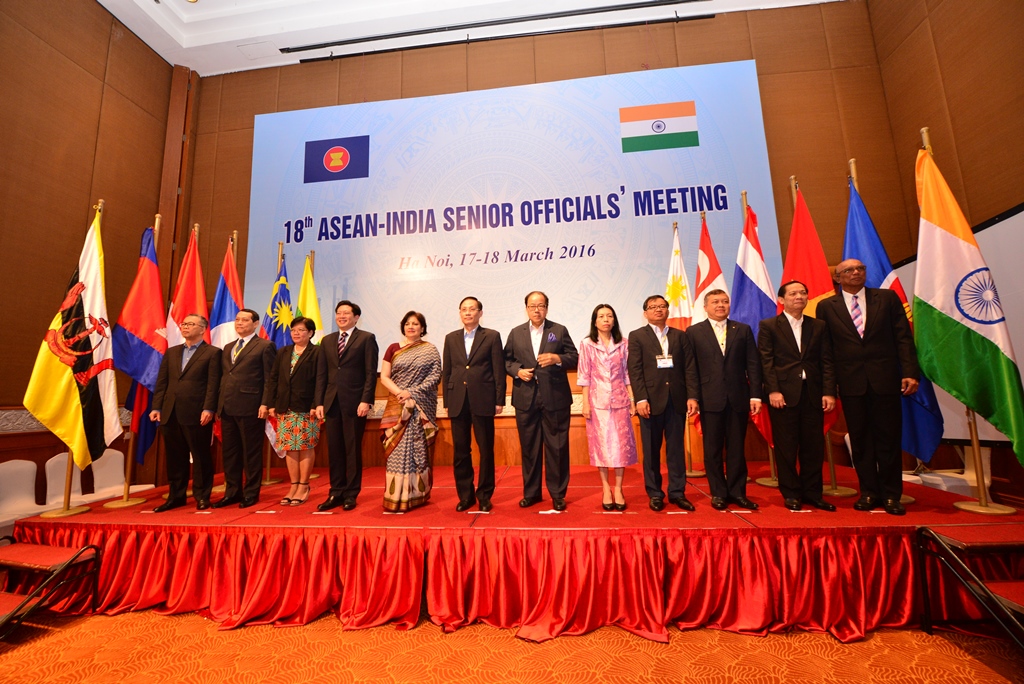Context:
Recently, the 5th meeting of the ASEAN-India Trade in Goods Agreement (AITIGA) Joint Committee took place in Jakarta, Indonesia, from July 29 to August 1, 2024. This meeting is pivotal for enhancing economic cooperation between ASEAN and India.
Key Highlights
- Sub-Committee Discussions: AITIGA Joint Committee and All eight Sub-Committees, which focus on various aspects of the trade such as ‘National Treatment and Market Access’ and ‘Customs Procedures’, convened and reported significant progress to the Joint Committee.
- Bilateral Engagements: The Indian delegation held bilateral discussions with representatives from Malaysia, Singapore, Indonesia, and Vietnam to align on AITIGA review issues.
- Meetings with ASEAN Secretary General Dr. Kao Kim Hourn also took place to explore further economic cooperation between India and ASEAN through a review of AITIGA.
- Future Outlook: The next AITIGA Joint Committee meeting is scheduled for November 19-22, 2024, in India, aiming to continue the momentum of trade facilitation and cooperation between ASEAN and India.
ASEAN-India Trade:
- India signed an FTA with ASEAN (its fourth largest trading partner), known as AITIGA, on 13th August 2009. It was implemented in January 2010, followed by an FTA in services and investments in 2014.
- Commodity trade between India and ASEAN region has reached 131.57 billion in 2022-23.
- India’s main trading ties are with Indonesia, Singapore, Malaysia, Vietnam and Thailand.
Association of Southeast Asian Nations (ASEAN):
- It was formed in 1967 with the signing of the Bangkok Declaration.
- Initially, it consisted of five members: Indonesia, Malaysia, Philippines, Singapore and Thailand.
- It is a regional grouping that promotes economic, political, and security cooperation.
- ASEAN countries have a total population of more than 700 million people and a combined Gross Domestic Product (GDP) of USD 3.62 trillion as of 2022.
Members:
- ASEAN brings together 10 Southeast Asian states – Brunei, Cambodia, Indonesia, Laos, Malaysia, Myanmar, Philippines, Singapore, Thailand and Vietnam.
Challenges in India-ASEAN relations:

- Trade Imbalances: India’s trade deficit with ASEAN has widened over the years, in 2022-23, India’s imports from ASEAN amounted to $87.57 billion compared to $44 billion in exports.
- Regional Agreement: Engagement of ASEAN countries with other regional agreements like the Regional Comprehensive Economic Partnership (RCEP) and the Comprehensive and Progressive Agreement for Trans-Pacific Partnership (CPTPP) diverts attention and resources away from the ASEAN-India relationship.
- Chinese Presence: The existence of other regional powers like China limits ASEAN’s ability to fully leverage India’s potential for regional stability and economic growth.
- Limited Connectivity: Despite efforts to enhance connectivity, physical and digital connectivity between India and ASEAN countries remains limited, which affects trade, investment, and people-to-people ties.
Way Forward
To enhance India-ASEAN relations, strategic steps include expanding the QUAD to include ASEAN countries and fostering greater collaboration and security in the Indo-Pacific. Strengthening maritime security ties, especially given ASEAN’s limited military ties with China, promoting cultural connections through tourism, and improving connectivity to boost trade, investment, and people-to-people interactions.

